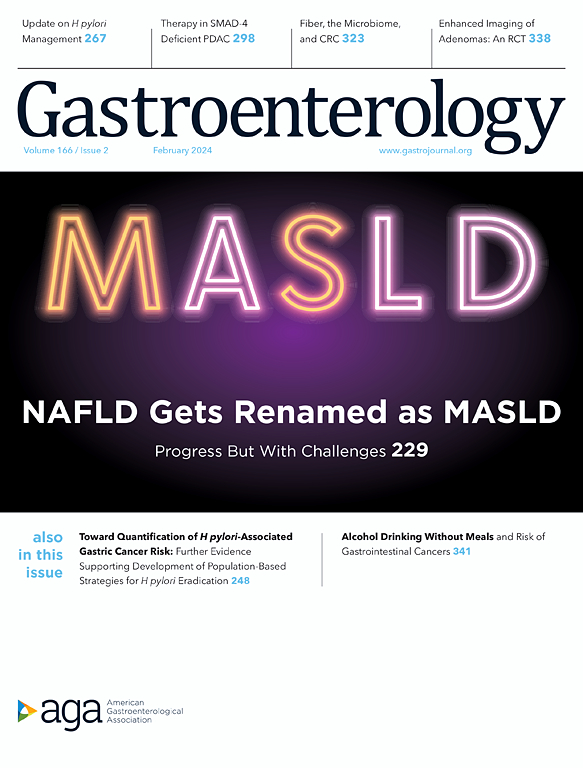AI-Enabled Clinical Trials in IBD: Automating and Enhancing Disease Assessment and Study Management
IF 25.7
1区 医学
Q1 GASTROENTEROLOGY & HEPATOLOGY
引用次数: 0
Abstract
Artificial intelligence (AI) will fundamentally improve how we perform clinical trials by addressing issues of standardizing disease scoring, improving the sensitivity and precision of activity and phenotype assessments, and automating laborious and time-consuming study functions. Progress in AI image analysis is quickly proving to replicate expert judgement in endoscopy, histology, and cross-sectional imaging with speed, reproducibility, and reduced bias. However, AI analytics offer the ability to quantify disease characteristics with more detail and precision than human experts. Large language models and generative AI are automating the collection of high-quality data from electronic records and improving our ability to predict patient outcomes. This narrative review will focus on AI tools available today, their expected implementation, and future-facing opportunities for AI to reimagine IBD clinical trials.求助全文
约1分钟内获得全文
求助全文
来源期刊

Gastroenterology
医学-胃肠肝病学
CiteScore
45.60
自引率
2.40%
发文量
4366
审稿时长
26 days
期刊介绍:
Gastroenterology is the most prominent journal in the field of gastrointestinal disease. It is the flagship journal of the American Gastroenterological Association and delivers authoritative coverage of clinical, translational, and basic studies of all aspects of the digestive system, including the liver and pancreas, as well as nutrition.
Some regular features of Gastroenterology include original research studies by leading authorities, comprehensive reviews and perspectives on important topics in adult and pediatric gastroenterology and hepatology. The journal also includes features such as editorials, correspondence, and commentaries, as well as special sections like "Mentoring, Education and Training Corner," "Diversity, Equity and Inclusion in GI," "Gastro Digest," "Gastro Curbside Consult," and "Gastro Grand Rounds."
Gastroenterology also provides digital media materials such as videos and "GI Rapid Reel" animations. It is abstracted and indexed in various databases including Scopus, Biological Abstracts, Current Contents, Embase, Nutrition Abstracts, Chemical Abstracts, Current Awareness in Biological Sciences, PubMed/Medline, and the Science Citation Index.
 求助内容:
求助内容: 应助结果提醒方式:
应助结果提醒方式:


